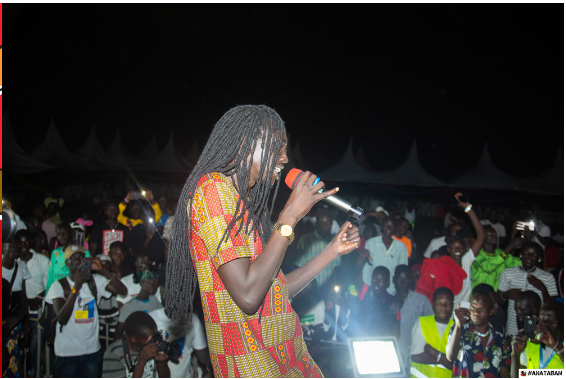Unholy Land
As Israel turns 75 and missiles fall on Palestine, today’s guests ask: Can Israelis protect civil rights and dignity for all citizens?
Black and Blue
New York Times columnist Jamelle Bouie is at the forefront of the national conversation on police violence and racism. On this episode, he tells us what we might actually do about it.
Twitter Pill
A former editor and columnist turned media scholar discusses Black Twitter, a community that fueled a movement for racial justice and the end of police brutality. And she explains what this story has to say about the need for reparative journalism.
Fighting with Song
Musicians and artists of the Anataban movement in South Sudan have been mobilizing to demand free elections and an end to the cycle of violence. A leader of the movement joins us on the show to talk about his work and his music.
Ballot Blues
In Nevada, a secretary of state struggles against election denialism, political apathy and threats against poll workers. A legal scholar in Virginia, meanwhile, says the surest way to address political and economic inequality in America is by making it easier for poor people to vote.
Resisting Russia’s War
Evgeniya Chirikova got a knock at the door of her home in Moscow from the FSB, Russia’s national security service. They wanted to take her children away. It only supercharged her activism. And, in Ukraine, a teenager struggles to stay sane and do her part for her country.
The Road Past Roe
In 2016, she won a critical Supreme Court case affirming abortion rights. Now that effort has been all but undone. Still, Amy Hagstrom Miller says she will keep fighting for abortion as a human right that is fundamental to the democratic project.
Rights of Passage
Is the United States a “nation of immigrants”? Depends whom you ask. But one thing is certain: who counts as worthy of being American has always been contingent and politicized. Amanda Frost takes Will, Siva and their class on a journey through immigration history.
Disunion Runs Deep
There’s no question the U.S. Constitution was, in its original form, a proslavery compromise. But for many — including early African-American activists — the country’s founding principles planted the seeds of the freedom movement. A Civil War historian discusses America’s political fault lines in the 19th century and how they resonate today.










